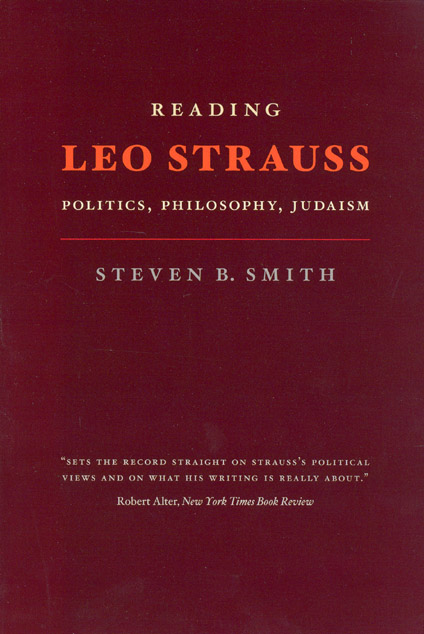The controversy surrounding Leo Strauss

This week’s Chicago Reader features a front page story titled “Defending Strauss” in which contributor Julie Englander delivers a comprehensive report on the long-running controversy surrounding the former University of Chicago professor of philosophy, Leo Strauss, who died in 1973. As Englander explains, Strauss’s name and work have become closely associated with the political practices of some of the neoconservative architects of the war in Iraq, like former U.S. Deputy Secretary of Defense Paul Wolfowitz and high-ranking Pentagon official Abram Shulsky, based partly on their association at the University of Chicago. Englander writes:
[The critics argue that] Straussians agreed with their guru, a scholar of Plato, that there are “truths [that] can be comprehended only by a very few, and would be misunderstood by the masses.” Thus the “noble lie” (a phrase from Plato’s Republic that Strauss liked to use) that [the Bush administration] told the American public: Saddam Hussein has weapons of mass destruction, and we’ve got to go in there, whatever the cost.
But as Englander notes, several writers have recently come to Strauss’s aid, arguing that his work has been misinterpreted and misappropriated in the context of America’s current political woes:
Figuring enough was enough, in 2006 Michael and Catherine Zuckert published The Truth About Leo Strauss. They described Strauss’s encounters with ancient and modern philosophy and pictured him as a skeptic and moderate who had conflicted feelings about modern democracy (as he did about modernism generally) but thought it better than the alternatives. They asked, “Does the Platonic/Straussian doctrine of the noble lie serve to justify the kind of alleged lies critics of Strauss… lay at his doorstep?” They went on, “This is not to say that political leaders do not on occasion do such things, but again, they did not learn to do this from Strauss.”
“A lot of stupid and unfair things were said about Strauss,” says Michael. “The idea that he had some big political agenda is just nutty.”
Yale’s Steven Smith concedes in the preface to Reading Leo Strauss: Politics, Philosophy, Judaism that Strauss “has always been something of an exotic plant” and is undoubtedly “an acquired taste.” But he was “a friend of liberal democracy—one of the best friends democracy has ever had.”
To find out more about this thinker and the controversy he stirred up thirty years after his death, read an excerpt from Reading Leo Strauss or read an excerpt from the Zuckert’s The Truth about Leo Strauss.
Also be sure to do a quick search on our website to find some of Strauss’s own works including Leo Strauss On Plato’s Symposium and On Tyranny.